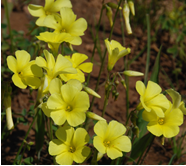Investigating ecological effects of polyploidization in a cosmopolitan grass genus
Polyploidization, the process whereby an organism receives two whole copies of its parents’ genomes (instead of half of each parents’ genome), is very common among plants and is thought to be an important mechanism for creating new species (polyploids).
Comments Off on Investigating ecological effects of polyploidization in a cosmopolitan grass genus
17 February 2015

